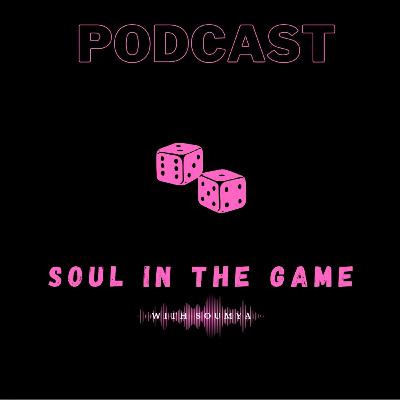Uplift & Recycle: The Bra Recyclers | Soul In The Game
Description
Social Enterprise: Sustainability, Circular Economy & The Bra RecyclersSocial Enterprise Framework
Social enterprises combine for-profit and nonprofit models, using commercial strategies to drive positive social and environmental change while maintaining financial sustainability. Unlike traditional businesses focused on shareholder returns, they reinvest most profits to advance their mission.
Their distinctive "triple bottom line" approach measures success through financial performance, social impact, and environmental sustainability. This framework addresses complex societal challenges through innovative business solutions creating sustainable value for diverse stakeholders.
Sustainability within social enterprises encompasses:
- Resource Efficiency: Minimizing energy consumption, water usage, and waste
- Supply Chain Management: Ensuring ethical sourcing and fair labor practices
- Product Lifecycle Consideration: Designing with end-of-life impacts in mind
- Community Investment: Strengthening local communities and ecosystems
These enterprises address current needs without compromising future generations' ability to meet their own, serving as catalysts for transformative change.
The circular economy eliminates waste by continually reusing resources, contrasting with the linear "take-make-dispose" model. Key strategies include:
- Designing Out Waste: Creating products for durability and recyclability
- Extending Product Life: Through repair, refurbishment, and repurposing
- Regenerating Natural Systems: Supporting ecosystems through sustainable materials
Social enterprises advance these principles through their mission-driven focus, pioneering approaches that address environmental challenges while creating economic opportunities.
The Bra Recyclers exemplifies social enterprise, sustainability, and circular economy principles by diverting undergarments from landfills while supporting women in challenging circumstances.
They collect bras through individual donations, corporate partnerships, and retailers. After inspection, items follow two pathways:
- Social Impact: Distributing suitable bras to nonprofits serving women experiencing homelessness, domestic violence, or economic hardship
- Recycling: Breaking down unusable bras into components (fabrics, metals, elastics) for new products
By extending textile lifecycles, they reduce:
- Landfill waste from discarded undergarments
- Resource consumption for new production
- Carbon emissions from manufacturing and disposal
The organization creates benefits by:
- Restoring dignity to women in crisis through essential intimate apparel
- Supporting shelters and breast cancer organizations
- Creating awareness about textile waste and sustainable consumption
The Bra Recyclers maintains viability through:
- Volume-based recycling revenue
- Corporate sponsorships and partnerships
- Consulting services on textile waste management
This balanced approach ensures continued environmental and social mission fulfillment while remaining economically sustainable.
The intersection of social enterprise, sustainability, and circular economy principles offers a powerful framework for addressing interconnected challenges. Organizations like The Bra Recyclers demonstrate how mission-driven business models create meaningful impact by reimagining consumption patterns and waste streams, contributing to a more equitable and environmentally responsible economy.
Sustainability IntegrationCircular Economy IntegrationCase Study: The Bra RecyclersOperational ModelEnvironmental ImpactSocial ImpactEconomic SustainabilityConclusion
Learn more about Bra Recyclers on their website The Bra Recyclers
Check out The Bra Recyclers Ambassador program: Ambassador Program
















